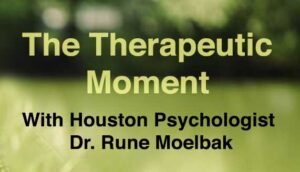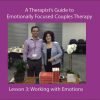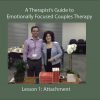As an outsider looking in, it is often difficult to understand what motivates a person to stay in an abusive relationship. The answer lies in a greater understanding of the forces of love...
Love is a strange phenomenon. It often overwhelms us and makes us act contrary to good wisdom. We often fall in love with people who are not good matches for us on paper, and feel drawn to people we would not choose if love was simply a logical exercise of counting the pros and weighing the cons.
Fact is, love is not rational, and we cannot dictate its ways with our rational brain.
Contrary to what we are made to believe by popular dating shows on TV such as The Millionaire Matchmaker, or advertisements for dating services such as Match.com, love doesn't really care about compatible values or a shopping list of criteria. It often bypasses these and undermines our desire for our logical mind be in control.
Love is a Biological force:
Research is increasingly telling us that love is a biological force with a logic of its own. It has the power to make us do things that we would not have imagined when we are not in the throes of it. Love can bring out powerful forces in us such as intense hatred, extreme jealousy, and gut wrenching fears of abandonment that can make us act in seemingly irrational ways.
Understanding Partner Abuse:
It is in the context of such powerful forces that we need to understand partner abuse, as well as the behavior of those who remain in abusive relationships.
People watching from the outside are often perplexed at the length a partner will go to in order to preserve their relationship with an abusive partner. Why don't they just leave? is a common question from people who are not themselves caught in the forces of love.
This is a quite natural reaction to have because logically that would indeed be the thing to do.
However, our emotional brain processes information quite differently and independently of our rational brain.
Holding on to an Abusive Relationship:
Love relationships are often cemented through a biological attachment to our partner. This biological process makes us latch on to the soothing comfort of feeling chosen, feeling needed, and having someone to count on.
Lovers often experience this comfort as a kind of homecoming. They will say that it feels like they have known their partner for a long time, even if they have just met. They will be drawn to a kind of familiarity in their partner that reminds them of earlier relationships from childhood and will connect their partner with a return to something safe, something comfortable, and something good.
Once this connection is established, the emotional part of our brain does not want to let go, and it will go to great length to preserve this sense of comfort and security, even in the face of evidence that a relationship is bad for us.
The strong power of our attachment need is supported by the observation that children often latch on to caregivers even when their caregivers are abusive. As a matter of fact, they may latch on even more strongly due to their fear of losing their attachment bond.
The same force that makes children latch on to their relationships when their bonds are threatened is also present in adults. Like children, adults will often go to great length to save their fragile or threatened attachments.
Unconscious Strategies Abuse Victims Use:
Victims of physical or emotional abuse will often deploy a number of psychological strategies to justify why they should not leave their partner.
One unconscious strategy that is often used by the abuse victim in order to maintain a fragile relationship is to take the blame for the partner's abuse. The abuse victim might for example take on the belief that they deserved to be hit because of their own wrong-doings: maybe they weren't as attentive as they should be, or maybe they lack some other personal trait or quality that their partner is justifiably angry about. This strategy helps keep the partner "good" so the victim can retain a belief in the goodness of the relationship and thus preserve the attachment.
Over time the abuse victim may develop the belief that they really aren’t worth much and that they are lucky to have a partner who tolerates them in spite of their failings. This rationalization ironically serves a protective function for the victim. Instead of feeling powerless in a cruel and uncaring world, the victim now instead feels in control. By locating the badness inside themselves where it can be dealt with, they don't feel at the mercy of an arbitrary and cruel world outside of their own control.
Why an Appeal to Logic Will Fail:
When others look in on such a relationship, they may shake their head in disbelief that a person will stay in a relationship in spite of so many reasons not to. We have to remember, however, that the reality of someone in the throes of love is not the same as that of a detached observer. A simple appeal to logic is thus often not enough to convince someone to let go of a relationship.
This is also why interventions by therapists who focus only on offering practical suggestions that appeal to the abuse victim's rational mind, are bound to fall on deaf ears, or to lead to eventual relapse.
To truly get to the root of the victim's dilemmas, the therapist must embrace both aspects of the victim's reality. They must invite the seemingly irrational and emotional urges alongside the rational problem-solving capacities of the more logical brain. Instead of passing moral judgment from the perspective of an outsider, the therapist must learn to follow and respect the rhyme and reason of the emotional brain as well.
About Me: I am Rune Moelbak, Ph.D., a psychologist and couples therapist in Houston, TX. I believe that change must happen through emotional insight. To read more about my approach to individual and couples therapy, please visit my website.

























